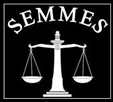|
Will bankruptcy stop wage garnishments?
Except for on-going child support or alimony, creditors may no longer garnish your wages for debts that you included in your bankruptcy. Once the debt is discharged in bankruptcy, the debt is eliminated and the creditor may not attempt to collect the discharged debt.
Do I have to list all my debts?
Yes, you must list all of your debts in your bankruptcy, even debts that are non-dischargeable, secured, or that you wish to pay off in full.
You can voluntarily pay a creditor after you receive a discharge, without becoming legally liable to continue paying. Thus listing a creditor does not prevent you from paying creditors you wish to pay after bankruptcy.
Omitting a debt constitutes perjury which could result in your discharge being denied.
Do I have to list all my assets?
Yes, you must list all of your assets. However, you will not be required to give up all your assets. The Bankruptcy Code provides that a debtor filing for bankruptcy can keep certain assets by exempting property from the bankruptcy estate.
Are there tax consequences to filing bankruptcy?
For the average individual debtor, receiving a discharge in bankruptcy has no tax consequences. The Internal Revenue Code §108 excludes the discharge of debt in bankruptcy from its definition of cancellation of debt income. Outside of bankruptcy, cancellation of debt may be treated as if it were income for tax purposes.
Get good tax advice before venturing into bankruptcy if your tax situation is complex.
Is the IRS affected by my bankruptcy filing?
All creditors, including the IRS, must stop collection efforts after the filing of a bankruptcy is filed.
Whether an IRS or State tax claim can be discharged in the bankruptcy depends on many factors that should be discussed with an attorney.
Will I lose my retirement savings?
No, most forms of retirement savings are unaffected by a bankruptcy filing, either because they are not property of the estate or because they may be claimed exempt from the claims of creditors.
ERISA pension plans
- The Supreme Court has held that an employee's interests in pension plans that are qualified under ERISA are not property of the estate: the debtor doesn't even have to exempt them in bankruptcy. If an assets is not property of the estate, the trustee can't cash it in for the benefit of creditors.
IRAs and Keogh Plans
- Retirement savings that are property of the estate, such as some Keogh plans and IRAs, can be claimed as exempt up to a million dollars.
Can I put my assets in someone else's name before filing?
Transferring assets to someone else’s name before filing will not put your assets beyond the reach of creditors and bankruptcy trustees. Such a transfer could lead to the court denying the discharge of your debt.
A trustee can recover assets transferred within two years of the filing where the debtor did not get reasonably equivalent value for the asset, or where the transfer was made with intent to hinder creditors.
Can I discharge my student loans?
Student loans are not dischargeable in bankruptcy unless repaying the loan creates an undue hardship on you or your family.
Proving hardship requires showing that 1) you are unable to provide a minimum standard of living for yourself and your dependents if you are required to repay the loan, 2) additional circumstances exist indicating that your situation is likely to persist; and 3) you have made a good faith effort to repay the loans. Some courts will discharge part of the loan on a showing that repaying it all would be a hardship.
Be warned, it is near impossible for a debtor to show undue hardship.
Student loans are sometimes unenforceable due to school closures, fraud, etc. Chapter 13 can provide a way to cure defaults on student loans, or to pay them off over the course of the plan.
Does my spouse have to file bankruptcy with me?
No, you may file without your spouse.
Joint debts
- Generally, marriage alone doesn't make both spouses personally liable for a debt. Liability on contracts such as home loans and credit cards arises by agreement between the creditor and the debtor. Only persons who signed the loan or credit application are liable for the debt.
- A joint tax return, however, makes both spouses liable for the total of the tax due.
- If you have joint debts, the bankruptcy may be included on the credit report of the non filing spouse.
Joint property
- If you and your spouse own property together, that property may be included in the bankruptcy estate and be potentially available to pay creditors. So the filing of one spouse could have significant impact on the other.
- A bankruptcy filing by one spouse does not automatically include the non-filing spouse in the bankruptcy.
How is my spouse affected if I file bankruptcy alone?
Chapter 7
- If a debt is a joint debt of the two spouses, the non-filing spouse is not afforded the protection of the automatic stay (preventing creditors from collection attempts on the debt) or the bankruptcy discharge (eliminating the filing spouse’s personal liability on the debt).
Chapter 13
- If a debt is a joint debt of the two spouses, the non-filing spouse is not afforded the protection of the automatic stay (preventing creditors from collection attempts on the debt) or the bankruptcy discharge (eliminating the filing spouse’s personal liability on the debt) unless the debt is a consumer debt to be paid 100% through the Chapter 13 plan. If the debt is a consumer debt to be paid 100% through the Chapter 13 plan, the co debtor is protected by a codebtor stay.
|

